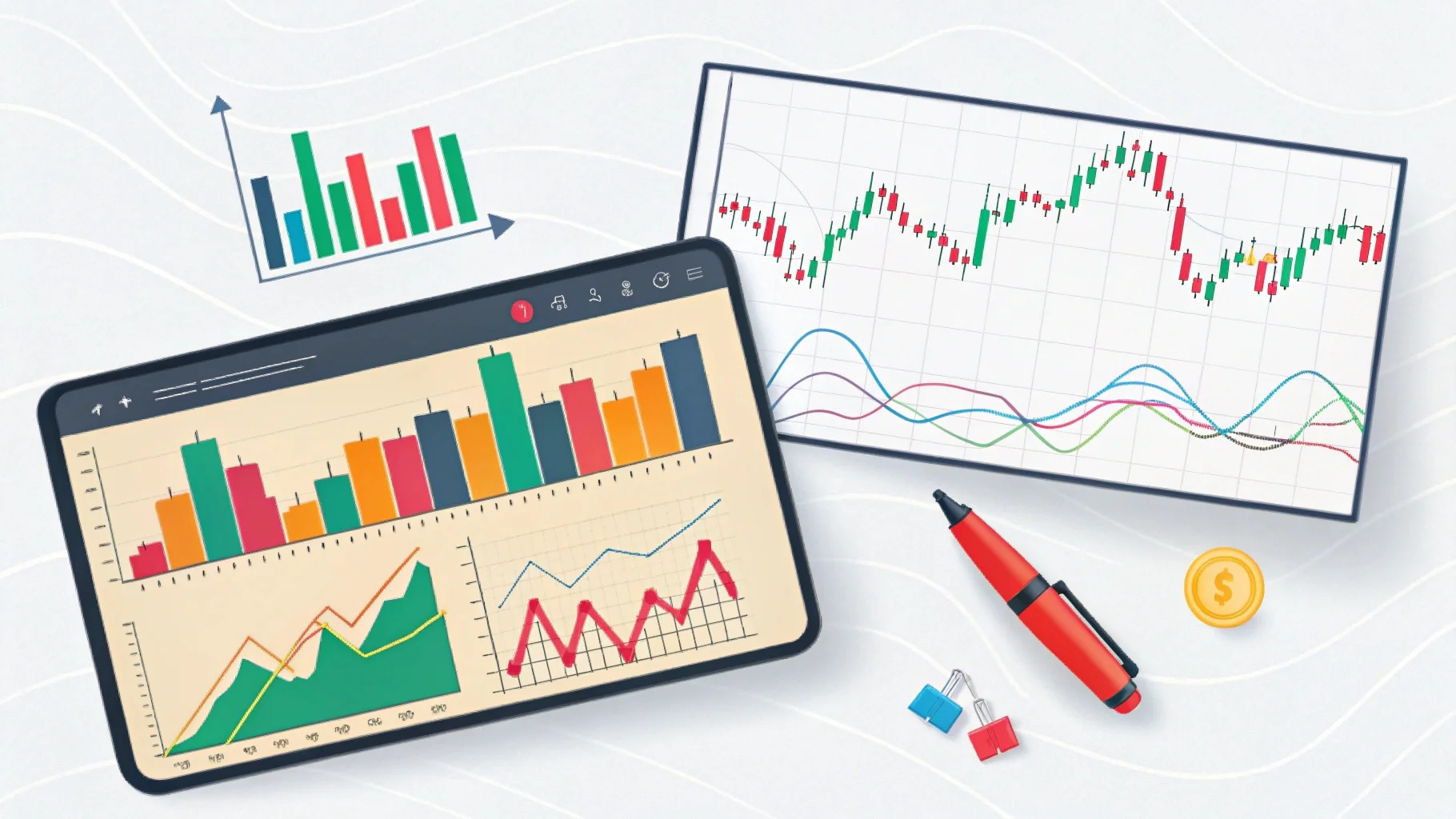Home >> Blog >> What Is a Debenture Share? Meaning, Features & Investment Guide
What Is a Debenture Share? Meaning, Features & Investment Guide

Table of Contents
Investors quite often come across the terms shares, bonds, and debentures when stock investing. While many understand what a share is, very few know what a debenture share is and how it functions. Debenture share is a hybrid investment instrument and carries characteristics of both equity and debt.
This is the debenture share guide. This guide covers the different characteristics of the instrument, how many types it comes in, the perks of possessing it, and how investing in a debenture can be profitable for you in the share market.
What Is Debenture Share?
Meaning of debenture share- Debenture shares can be described as a financial instrument that is a loan given to a company by its investors. Simply put, when a company sells a debenture in the market, it is inviting debt. Investing in a debenture represents a loan and is entitled to fixed interest for a specific time and a return of the principal amount at the end of the time period.
Debenture holders do not own a share in the company unlike equity shareholders. This is because a debtor is not an owner. They also cannot vote in company meetings. However, they can enjoy a fixed interest payment periodically in the form of a coupon payment.
Regarding the debenture share meaning in accounting, it represents part of the company's debt and is recorded on the liabilities side of the balance sheet.
Example:
Imagine ABC Ltd. issues Rs. 10 crore worth of debenture shares paying a fixed interest for Rs. 8% for 5 years.
As an investor, if you purchase debentures worth Rs. 1 lakh, the company will pay you an interest of Rs. 8,000 every year till maturity, and at the end of 5 years, it will also return your Rs. 1 lakh principal.
Difference Between Share and Debenture
|
Basis |
Share |
Debenture |
|
Nature |
Represents ownership in the company |
Represents a loan given to the company |
|
Return Type |
Dividends (variable) |
Fixed interest rate |
|
Voting Rights |
Yes |
No |
|
Risk Level |
High (depends on profits) |
Low to moderate |
|
Priority at Liquidation |
Paid after the debt holders |
Paid before shareholders |
|
Convertibility |
Cannot be converted to debt |
Can be converted to equity (if convertible) |
Key Features of Debenture Shares
To fully understand debenture in share market, let’s look at its main characteristics.
1. Fixed Rate of Interest
Debentures holders earn a pre-arranged interest rate irrespective of the company’s performance. This makes earning interest payable by the company a predictable source of income.
2. Redeemable or Convertible
Some debentures are redeemable, meaning they are repaid after a fixed period. Others are convertible, allowing investors to switch their debt for equity shares at a future date.
3. No Ownership Rights
Debenture holders are lenders, not owners, so they are under no obligation to provide control or voting rights to the holders in company decisions.
4. Priority During Liquidation
Should the company ever face bankruptcy, the first people to priority for payment would be the debenture holders, right before the shareholders.
5. Security-Backed or Unsecured
Debenture holders can receive secured debentures (which are backed by company assets), or they can receive unsecured debentures (which will solely depend on the company’s creditworthiness).
6. Listed on Stock Exchanges
Numerous debentures are listed and traded on stock exchanges, offering investors stock-like liquidity.
Types of Debenture Shares
Debentures are classified into several types based on convertibility, security, and duration:-
|
Type |
Description |
|
Convertible Debentures |
Can be converted into equity shares after a specified period. |
|
Non-Convertible Debentures (NCDs) |
Cannot be converted; investors receive only fixed interest and principal repayment. |
|
Secured Debentures |
Backed by company assets, ensuring repayment safety. |
|
Unsecured Debentures |
No asset backing; higher risk but may offer better returns. |
|
Redeemable Debentures |
Repaid after a certain time as per the agreement. |
|
Perpetual Debentures |
No maturity date; interest continues indefinitely. |
Why Companies Issue Debenture Shares
Debentures are used for long-term capital raising and avoiding share dilution. Some common reasons include:
1. Expansion Projects: To fund new plants or capacity expansion.
2. Debt Restructuring: To pay off existing high-interest loans.
3. Working Capital Needs: To fund everyday liquidity and operations.
4. Tax Efficiency: Interest on debentures becomes tax-deductible to the company, hence lowering tax liability.
Therefore, compared to issuing new shares, issuing debentures can raise funds more economically.
Why Investors Choose Debenture Shares
Investors after steady returns find debenture shares appealing for several reasons.
1. Consistent Returns: Predictable returns are generated by fixed interest.
2. Safety: Capital is safe with secured debentures.
3. Portfolio Diversification: Fixed-income debentures are helpful for heavy-equity portfolios.
4. Easy Trade: Liquidated debentures are simple to purchase or sell via stock markets.
5. Interest Tax Deductions: The structure of a debenture may allow for interest income to be tax-deductible.
Investors should be aware of credit risk - the risk of default by a company. Always evaluate company credit rating agencies like CRISIL or ICRA before investing.
How to Invest in Debenture Shares
There are several simple methods for investing in debenture in share market:
1. Primary Market (IPO of NCDs):
Debentures are publicly offered by companies through NCD IPOs. Investors can apply through Demat accounts like equity IPOs.
2. Secondary Market (Stock Exchanges):
Traded-listed debentures are under the debt instruments category of NSE or BSE.
3. Mutual Funds and ETFs:
Debt mutual funds and fixed-income ETFs are diversified with portfolio instruments containing debentures.
4. Direct Allotment:
High-net-worth individuals and institutions are also able to directly subscribe to private placements of debenture issuances.
Defending Risks Associated with Debentures
Even though debenture shares are SAFER than stocks, they still pose a risk:
Credit Risk: The company that is issuing them might default.
Interest Rate Risk: If there is an increase in the market’s interest rates your fixed-rate debentures will depreciate in value.
Liquidity Risk: Some corporate debentures will not be able to be traded easily.
Inflation Risk: High inflation will cause fixed payments to depreciate.
Conclusion
Equity investments and fixed deposits are very different from each other. Debenture shares comfortably bridge the distance between the two. Before picking any debentures in the share market, NCD issues, or any form of debenture, always check the company’s credit rating, interest rates, and repayment terms.
For a low-risk, fixed-income, and tradable investment with the market, debenture shares are a good option in a diversified portfolio.
DISCLAIMER: This blog is NOT any buy or sell recommendation. No investment or trading advice is given. The content is purely for educational and information purposes only. Always consult your eligible financial advisor for investment-related decisions.
Author
Frequently Asked Questions
A debenture share is basically a loan you give to a company. The company promises to pay you fixed interest regularly and return your money at the end of the maturity period. Unlike shares, you don’t get ownership or voting rights.
Debenture shares are considered safer than equity because they offer fixed interest and have priority during liquidation. Secured debentures backed by company assets are even safer. However, investors must still check credit ratings before investing.
Shares give you ownership in the company and dividends that may vary.
Debentures act as a loan and offer fixed interest. Debenture holders get no voting rights and are repaid before shareholders if the company shuts down.
Yes. Many debentures, especially NCDs, are listed on stock exchanges like NSE and BSE, making them easy to buy and sell just like equity shares.
Debenture shares are suitable for investors who prefer:
-
Stable and predictable returns
-
Lower risk compared to equity
-
Diversification in a portfolio
-
Regular passive income through interest
They are ideal for conservative investors, retirees, or anyone looking for steady cash flow.




















